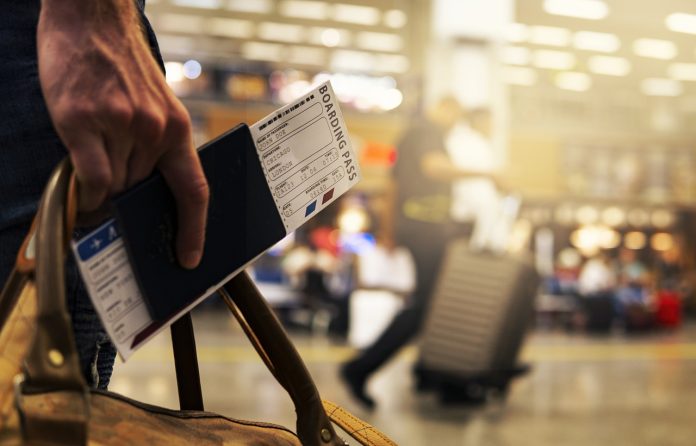There’s no denying that the UK can be a great place to live and work. However, that doesn’t make it the be all and end all. There are many reasons over half a million people emigrate from the UK each year, from greater job opportunities and better pay abroad, to nicer weather and lower living costs overseas.
If you’ve decided that leaving the UK is the right choice for you, the next decision you need to make is where you’re actually going to relocate to. This can be hard to determine without considerable forethought, but where do you start? Fear not, as below we cover the main things to consider when choosing your next home country.
1. Your skills and experience
Unless you’re retired, your first consideration should be your career. After all, you’ll need to make a living in your new country, so you must find a destination where your skills and experience are required. It’s important to research the state of your industry in any prospective new country. As well as ascertaining the level of job opportunities there, you’ll also need to take into account factors such as the pay and the possibilities for progression.
Many countries specialise in particular sectors. For example, Germany is known as a tech hub, with tech giants such as Lufthansa Systems, SoftServe and SAP hailing from there. For example, SAP recruiter Eursap remarks that: “As the birthplace of the pioneering enterprise software, there is an abundance of SAP jobs in Germany. You will find openings across the country, with North Rhine-Westphalia – NRW (Cologne, Düsseldorf, Dortmund and Essen) being one of the main hubs for hiring SAP consultants.”
Meanwhile, Switzerland is known for its finance sector, China for manufacturing, and Brazil for mining, to give just three other examples. Finding somewhere that specialises in your chosen sector is a surefire way to improve your career prospects in a new nation.
2. Your lifestyle preferences
It’s all well and good living somewhere where you’re paid handsomely and have great job security, but it’s of little comfort if you don’t like the country you live in. Some of the main aspects you should consider to ensure you love the location you move to include:
- Cultural differences: Familiarise yourself with the local culture, customs, and traditions to work out whether they are in keeping with your lifestyle preferences. For instance, you may not want to move to a highly religious country if you are an atheist, or you may want to check LGBT+ rights if you are part of that community.
- Language: Consider whether it’s possible to get by in English in a prospective new country, and if not, how difficult it is to learn the language there. Take Mandarin, for example, which is considered one of the hardest languages to learn and may dissuade you from moving to China.
- Accommodation: Find out if there is suitable housing that fits your needs and budget, taking into account factors such as location, safety, and proximity to amenities.
- Education: If you have children, research the local education system and schools to see if they are suitable.
- Healthcare: Familiarise yourself with the healthcare system in a prospective destination, including access to medical services and whether there is a need for health insurance.
- Transportation: Learn about public transportation options and driving regulations, and consider whether these are suitable.
- Safety and security concerns: Check for safety and security concerns in your prospective new location and determine if you will feel safe there or not.
- Cuisine: Food is more important to some people than others. If you’re a certified foodie, moving to a country known for its cuisine may be more of a priority.
- Climate and weather: Understand the local climate and weather conditions of the country you’re considering. For example, if you’re looking to leave the UK for somewhere warmer and sunnier, it makes little sense to emigrate to Ireland.
- Time zones and communication: Consider time zone differences when looking at countries abroad. If you want work from the UK remotely, doing so from Australia may not be the ideal choice.
- Legal and tax requirements: For instance, if having as much income as possible is important to you, it may make sense to swerve high-tax countries like those in Scandinavia.
3. Your immigration options
Some countries are much easier to move to than others for UK citizens. Your ease of immigration to a particular nation is sure to play a big factor in your choice, so it’s crucial to consider this beforehand.
Countries it’s easier to emigrate to
For example, the following countries are considered easier to emigrate to:
- Ireland: Due to the Common Travel Area (CTA) agreement, UK citizens can live in the Republic and Ireland and access public services without immigration restrictions.
- Australia: Australia has several skilled migration programmes that UK citizens can apply for, including skilled worker visas, family reunion visas, and retirement visas for those over 55 with sufficient funds.
- Canada: Canada offers various immigration pathways, including Express Entry for skilled workers, family sponsorship, and provincial nominee programmes that provide opportunities for permanent residence.
Countries it’s harder to emigrate to
Meanwhile, these countries are deemed harder to move to for UK citizens:
- Japan: Japan has strict immigration policies, and obtaining permanent residency can be challenging. To qualify, individuals often need to demonstrate a significant contribution to Japanese society or have family ties to the country.
- Switzerland: Switzerland has very restrictive immigration policies, and acquiring permanent residency typically requires a high level of income and job skills, along with sponsorship by an employer.
- China: China’s permanent residency programme, known as the “green card” programme, has stringent requirements, and it can be challenging for foreigners, including UK citizens, to obtain permanent residency.
We hope this guide will prove practical in helping you to choose your next home country, and we wish you the best of luck in your new adventure.







